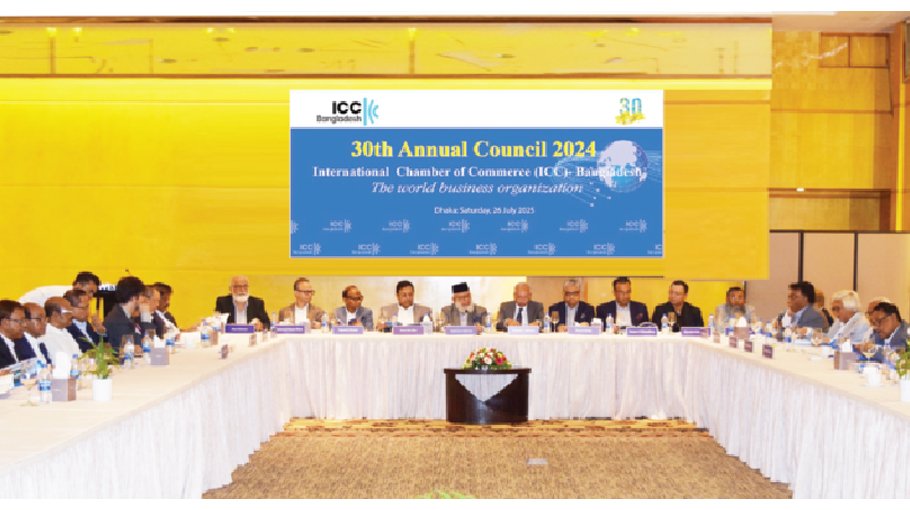Govt should form task force to negotiate fairer trade terms with US
Business leaders tell ICCB’s 30th Annual Council

Leaders of the International Chamber of Commerce – Bangladesh (ICCB) on Saturday suggested forming a task force under the Ministry of Commerce to negotiate fairer trade terms and ensure continuity of access.
Addressing the 30th annual council of ICCB, they also observed that the proposed 37% tariff on Bangladeshi exports to the U.S. could severely affect RMG exports and job creation.
The 30th Annual Council of the ICCB was held in Dhaka.
Mahbubur Rahman, President of the International Chamber of Commerce – Bangladesh, on behalf of the Executive Board, presented a comprehensive report on the evolving global and national economic landscape and its implications for Bangladesh.
As the world continues to face a volatile mix of geopolitical tensions, climate risks, and economic disruptions, the ICCB Council underscored the urgent need for Bangladesh to adapt strategically in order to navigate the complex challenges of 2025. The global backdrop remains unstable—marked by the Red Sea crisis, ongoing wars in Ukraine and the Middle East, and a resurgence of economic nationalism, especially following the return of Donald Trump to the U.S. presidency.
The Council noted that the global economy is expected to grow by just 2.8% in 2025, with the U.S.–China trade war further aggravating uncertainties. Inflationary pressures and protectionist policies risk fragmenting global supply chains—an alarming trend for developing economies such as Bangladesh.
In this context, Bangladesh’s economy faces significant headwinds. The World Bank projects GDP growth to slow to 3.3% in FY2024–25, while the IMF and ADB forecast growth at 3.8% and 3.9%, respectively. High inflation—exceeding 10% overall and 14% for food—combined with declining investment and political uncertainty, has deepened the economic slowdown.
A major concern is the fragile state of Bangladesh’s financial sector. Non-performing loans (NPLs) hit a record Tk 3.45 trillion by December 2024, with state-owned banks the worst affected. Nineteen banks have reported a capital shortfall of Tk 1.71 trillion, prompting the interim government to initiate banking reforms, including board dissolutions, bank mergers, and stronger oversight.
The High Commissioner of Brunei Darussalam, Haji Haris Bin Haji Othman; the Ambassador of the Republic of the Union of Myanmar, U Kyaw Soe Moe; the Chargé d’Affaires of Argentina, Maximiliano Romanello and Senior Economic Officer Asian Development Bank Barun Kumar Dey attended the Council Meeting as Special Guests.



